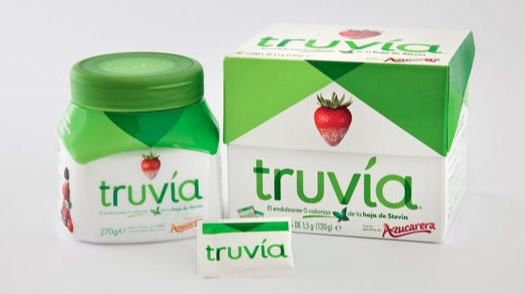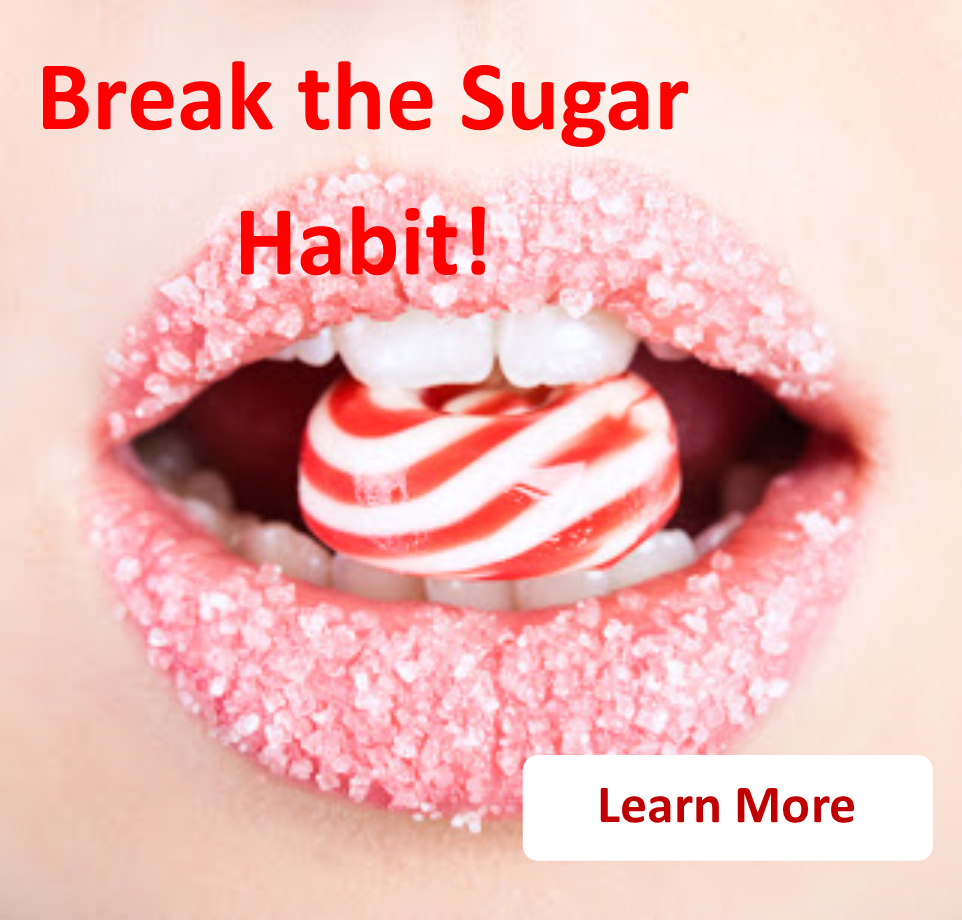Many people have asked about Stevia and xylitol and, quite honestly, I’ve been avoiding writing about it.

If you have been reading this blog for a while, you probably know that I’m not a big fan of sugar, artificial sweeteners, or sugar substitutes. But both Stevia and Xylitol actually do have some benefits. So, let me sit on the fence a bit and give you the pros and cons and see if you think you should include them in your diet.
Good Sweets?
First a little background:
- What is Stevia? Stevia is a herb native to Paraguay that has an incredible sweet taste. In fact, it is 300 times sweeter than sugar. It has been used for thousands of years as a sweetener and it appears to improve insulin sensitivity, may reduce hypertension, and even help fight obesity.
- What is Xylitol? Xylitol is a sugar that is found in fruits and some vegetables and is used as a common sugar substitute. It is about as sweet as sugar, but only 1/3 of the calories. It is used mainly as a sugar in chewing gums, because it supposedly produces fewer cavities than sugar gum and reduces plaques. Xylitol may help control yeast, such as thrush and has less of an impact on blood sugar.
Good for You?
Okay, here is the reason why I’ve been avoiding this subject:
Are these sugars good really for you?
Yes, Stevia and Xylitol are better for you than eating artificial sweeteners and sugars like high fructose corn syrup or cane sugar. They have less of an impact on your blood sugar and, actually can help with blood sugar problems. Stevia turns to better for you than Xylitol because Xylitol is still a sugar. But the question remains: does that mean you should be eating these sugars?
I would say it is okay to eat these sugars as long as you understand where they are in your diet and I would say it also depends on what kind of dietary plan you are on. If you are following the diet plans outlined in Sugarettes, then these sugars are okay if you are working to still eat sugars and trying to balance your blood sugar, but probably not okay if you where you are trying to avoid all grains and sugars.
The problem with these sweet substances is that they are still training your tastes buds to highly sweet tastes and this will eventually lead to craving real sugars again. And once you fall off the wagon, you are back on the sugar roller coaster.
I would also suggest that if you are going to use Stevia, watch out that you take the whole plant and not just the extracts and isolated compounds like steviosides (these are concentrated, purified, substances similar to white sugar).
There you go, xylitol and Stevia are a mixed bag: much better than most sugars, but maybe not the choice you want to make if you want to break free of the sugar madness that has a grip on you.











I am so glad I came across this today! I just asked my husband if he thought that the stevia I was using would be continuing the sweet-flavor cravings. Now I know that, although my blood sugar would be fine, my tastebuds would not be changing like they could. I’ve eliminated almost all added sugars and I already feel much better! I’m trying to eat whatever natural sugars (fructose) I have, with an ample amount of protein. Also, I don’t feel that I can completely eliminate bread. I was wondering what your take on sourdough bread is. The kinds I get do not use added sugar. I heard it was low-glycemic. Do you believe one can still feel really healthy and great while still eating these items (sourdough and fruits)?
Hi Julie,
I talk a lot about how to balance high sugar foods with low sugar foods at the end of my program, but there is also information on the web about creating low-glycemic meals. The best breads to eat (if you are going to eat breads) are the sprouted breads. Baring that, I would say you should try to eat your breads (and other sugars) as close to a meal with protein, fat and fiber in them as possible. Protein, fat and fiber all help slow the absorption of sugars.
Hope that helps,
Scott
Which one is better and safe as a sugar substitute Xylitol OR Stevia.
Tarun,
It is hard to say. I always tell people to stay away from new drugs because we don’t know how they react until thousands of people take them over a long period of time. We are in the exact same place with both Xylitol and Stevia. While Stevia has a long history of use, the extracted version most of us eat has not been used for very long. It appears that both are safe and even have some benefits, but I would just use them in moderation and it should be okay.
Scott
I grow my own stevia, and I process it entirely as leaf powder. I do not believe the white stevia is a true extract. It is my understanding that white powder stevia is made by pressing the plant, then dehydrating the pure plant liquid. The white powder is a pure reside from the pressed liquid. An extract would be made with alcohol.
Thanks Mindy,
Most Stevia is an extract and only one molecule (called rebaudioside A or Reb A). It would be much better if the whole plant was used.
It is misleading, calling xylitol and stevia sugars. They are not sugar. They are not even metabolized by the body – our tastebuds interpret these substances as “sweet” but they do not convert to energy in our body – they are not sugar.
Sucrose, or what we know as table sugar, is one glucose and one fructose molecule. IMO, it is dangerous because it is metabolized by the body but contains no nutritional value.
Ground up stevia leaf, and stevia extracts are different, however in my research I do not believe that it is the substance itself, but the extraction process, that poses more of a question about risk. But saying that concentrated stevia extract is similar to white sugar is completely false.
I can certainly tell you that I believe it to be better than sugar itself – and humans are hard-wired to crave sweets. It is actually evolutionary – consumption of more fruits (which are sweet), helped with the survival of the species (vitamins, minerals, enzymes). We are supposed to crave sweets.
Thanks for your comments Pam!
You are right Stevia is not a sugar, but xylitol is (it is a sugar-alcohol). Xylitol is poorly absorbed (only about 1/4 of the amount consumed is absorbed), but then is metabolized in the liver and turned into glucose.
My problem with Stevia is that it is an extract (unless you are buying the whole leaf) and it continues our addiction to super-sweet tastes (which eventually leads us back to eating sugar). When people remove sugars and foods that act like sugars from their diet, their tastes change; suddenly carrots, avocados, apples and other foods they used to think bland are now sweet. This is what are taste buds should be driving us to. Try it yourself, stay off sugars for a while and you will see that what we call normal sugar (or even Stevia) is too sweet.
Scott
Stevia leaves a very bad after taste for me. Xylitol does not. At a specialty store that carries health foods, I was told they don’t carry ylitol as it is a chemical and they do not consider Stevia as a chemical. Wondered why but got no answer.
Betty,
It is an odd distinction they are making. Xylitol is usually derived from birch or corn and most of the stevia in a store is also an extract. I think that the research on just what xylitol does in our body has a long way to go. It is probably okay in small amounts.
Scott